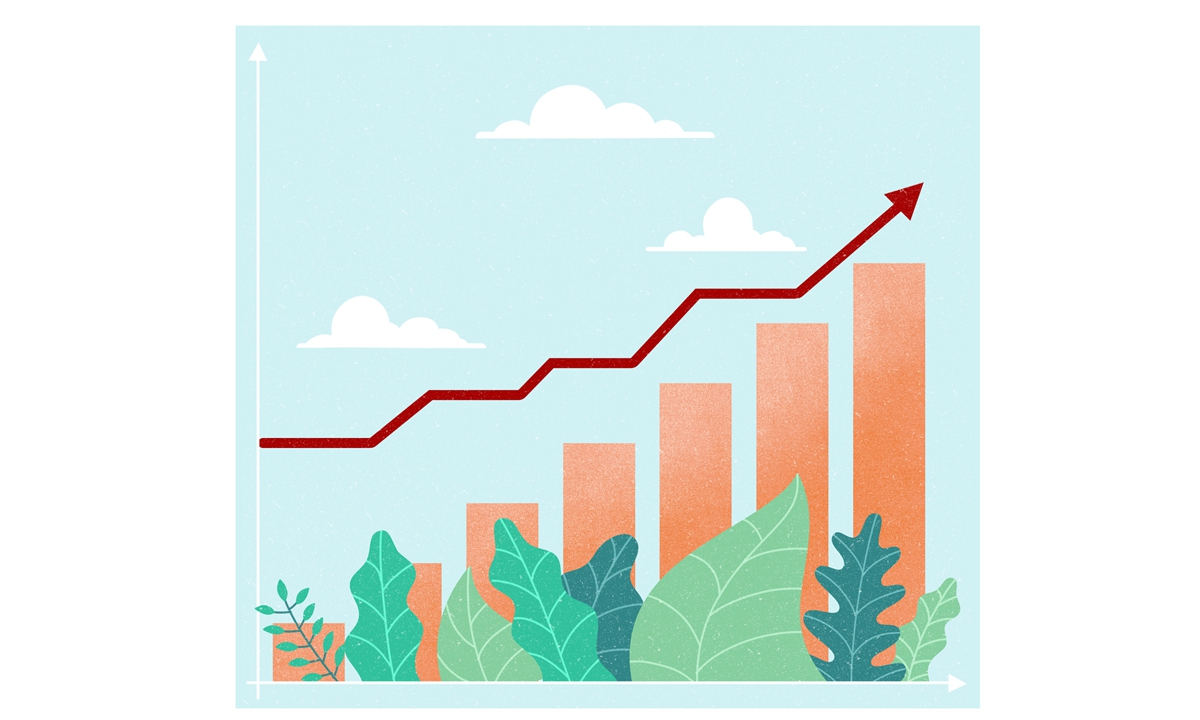China's stock market wrapped up one of the bumpiest year in 2022 with the benchmark Shanghai Composite Index finishing with a loss of 15 percent from 2021. However, investors are starting to rebuild confidence thanks to the government's move to optimize the anti-COVID responses. For instance, China has announced to resume the processing and approval of passport and visa applications for Chinese citizens going abroad from January 8.

Market analysts forecast a strong recovery of Chinese equities in 2023, with the Shanghai index at least reversing its dismal trajectory seen in 2022. The stock market is a barometer of the economy. If everything turns right, the world's second-largest economy will most likely pick up growth momentum after a widely anticipated Spring Festival shopping and travel spree, with domestic retail sale, export and infrastructure investment all reaching 2019 or pre-pandemic levels during the year of 2023.
Investors are increasingly buoyed by the emerging positive news as the latest Central Economic Work Conference sets the tone for all-out country-wide efforts to strive for a buoyant growth. In 2023, China's tertiary or services sector, which makes up more than 60 percent of the GDP, is expected to stage a strong comeback. In addition, Chinese officials have again listed residential housing construction as one of the economy's "backbone industries," meaning more pro-real estate sector policies will be meted out.
Though it remains unknown what the annual GDP growth target will be set at the upcoming National People's Congress (NPC) session in early March, the majority of the global investment banks predict China's growth rate at a range of 5-6 percent for 2023, which is likely to support the Shanghai composite stock index to rally by 15-30 percent from 2022, analysts predict. The second half of 2023 is expected to witness a cascade of growth tides, to be mirrored by waves of higher stock indexes.
China's capital markets will keep on feeling the impact of the world's other major markets, the Wall Street in particular. The US Federal Reserve's aggressive interest rate hikes remain a major concern for investors as the US central bank walks a tight rope between raising rates enough to cool elevated inflation, but not so much that they stall the US economy into a recession. Inflation, which briefly rose above 9 percent in the US in the middle of 2022, a 40-year high, hurt the country's economy across the board, and the subsequent Fed interest rate hikes have eroded corporate profits.
The largely opposite monetary policy pivots by the People's Bank of China and the Federal Reserve in 2022 will continue to present a snapshot for the trends during the coming months. While the Fed's key lending rate stands at a range of 4.25-4.5 percent now, the US central bank has forecasted that rate could reach a range of 5-5.25 percent at the end of 2023. Meanwhile, China's central bank is expected to maintain its relatively loose monetary policy, possibly to continue reducing the benchmark LPR (loan prime rate) to spur domestic consumption and ease housing mortgages.
From the perspective of investment, the Chinese central bank's easing monetary policy is always welcome news for stock investors. In contrast, the Federal Reserve's consecutive seven interest rates hikes since March 2022 have seriously pummeled investors' enthusiasm, with the Wall Street concluding the year on a sour note. All three major averages, including the S&P 500, Dow Jones Industrial and NASDAQ suffered their worst year since the 2008 financial debacle. As the Fed officials indicate they will maintain monetary tightening by ramping up interest rates in 2023, and a series of global geopolitical concerns will continue to hover overhead, the Wall Street is likely to witness another volatile year.
Like the technology-studded NASDAQ which tumbled 33.1 percent in 2022, China's ChiNext index racked up considerable loss too, dropping 29.37 percent last year. The index fared much worse than the Shanghai composite stock index because it is heavily made up of technology companies which led the broader market slump all across the world. Just as American leading technology firms including Apple, Microsoft, Google and Amazon suffered price losses of 25-70 percent, some major Chinese technology stocks were thrashed too last year. Only energy and telecom services sectors bucked the trend.
As the calendar turns to the new year, Chinese people have bid good riddance to the past three years by amassing on cities' landmark squares greeting the first sun rays of 2023. The government's move to optimize the anti-COVID responses is bringing a brand-new horizon for the capital market. Perhaps in offshore markets from New York to London to Tokyo, the pain is far from over as investors there expect the bearish market to persist until a recession hits, the mood on Chinese market is different, where investors are upbeat about a sizzling rebounding on the path.


